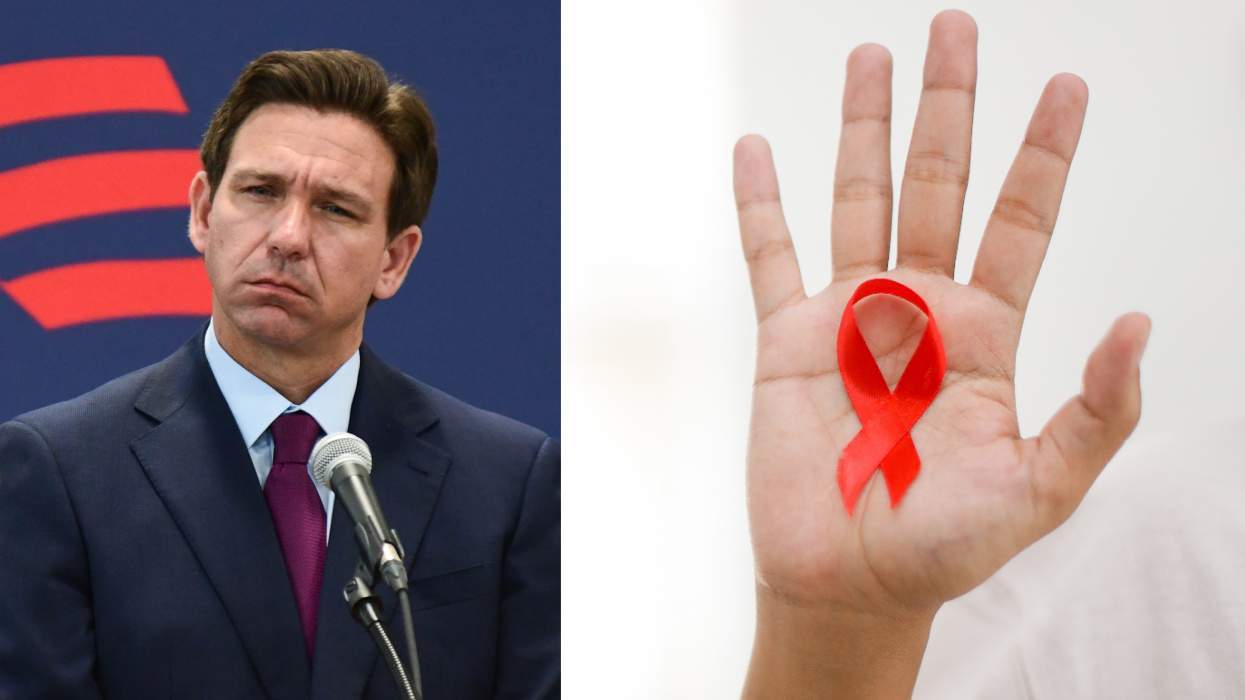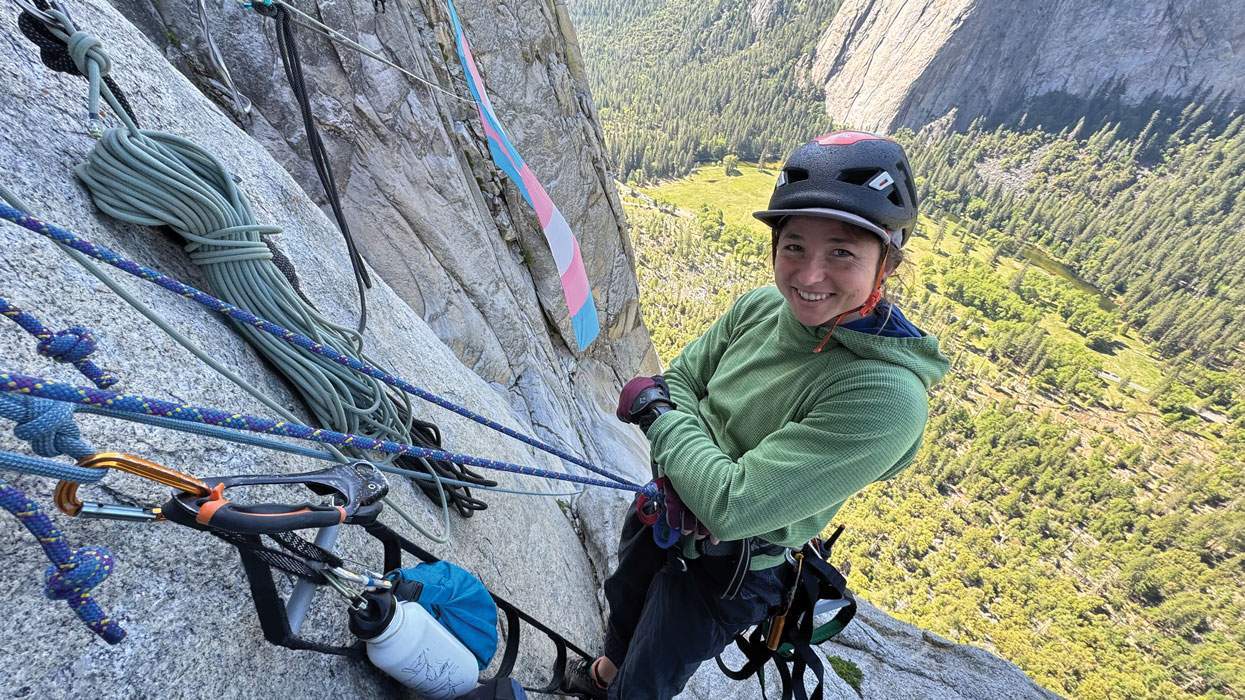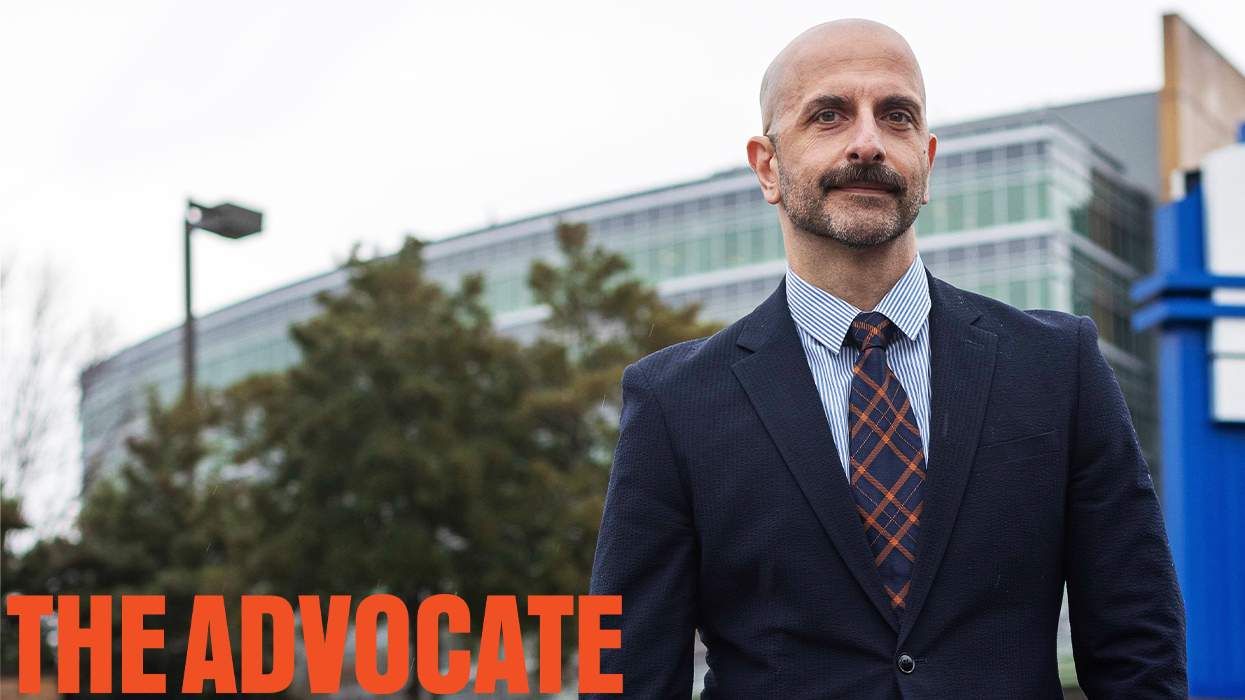Today's new age of digital censorship isn't what you might think of as "censorship." It has impacted not only the way advertisers are buying into media, but it's also inadvertently redirected necessary revenue away from some communities that need it most -- including those that speak to LGBTQ readers.
As companies aim to protect their brands from appearing in the wrong environments online, they utilize brand safety technology that flags hundreds of keywords to ensure their brands appear on websites that reflect their values. Sadly, those media companies catering to marginalized communities -- including people of color, religious minorities, LGBTQ folks, and HIV-impacted communities -- have seen unfortunate consequences.
These keyword exclusion lists began with good intentions. At the start, it was a simple automated digital advertising model aimed to help brands steer away from appearing next to "harmful" content online, like violence or overly-divisive political rhetoric. However, words like bisexual, gay, lesbian, queer, and transgender can all be flagged as pornographic in this kind of technology, despite the context in which it's used. As a result, advertising dollars are invisibly diverted away from LGBTQ media companies (and our allies) that serve queer and trans communities.
But one company is aiming to resolve this issue in an effort to return media dollars to companies that need it most. Mindshare, a global media agency network, is responding by developing a LGBTQ private marketplace (otherwise known as a PMP) that will aggregate publishers into one negotiated inclusion list so that brands support LGBTQ-specific publications as well as the LGBTQ content at broader publications.
According to research by Mindshare, automated keyword exclusion lists have created a systemic problem that has resulted in a lack of financial support for a variety of digital content, no matter its tone or the writer's intent.
In recent years, the technology has forced numerous publishers to shut down or severely downsize. As we previously reported, a study by the University of Baltimore and CHEQ shows that as much as 73 percent of neutral or positive LGBTQ online news have been incorrectly flagged by this type of technology.
Mindshare's LGBTQ PMP aggregated publishers include Pride Media's The Advocate, Out, and Pride.com, as well as Conde Nast's Them. Representatives at Mindshare confirm that as of this week, the PMP now includes up to 12 other publications with other clients expressing interest.
"It's critical that we challenge the brand safety standards of the last few years because they've become a roadblock to bringing more independent voices to media," Pride Media CEO Diane Anderson-Minshall said in a statement. "A lot of times that's LGBTQ voices, but also specifically people of color, immigrants and other underrepresented groups."
SKYY Vodka, a brand that has been a long supporter of LGBTQ rights, is Mindshare's first launch brand. The company's larger marketing campaign "Proudly American" features people celebrating diversity and pride -- a reflection of SKYY Vodka's long-held tradition of inclusion since it launched in San Francisco in 1992, where many of the company's first sales were to gay bars in the famous Castro district.
"At SKYY, we have a proud history of using the power of advertising to stand up for what is important to us and our communities, to reach diverse audiences, and to drive important conversations around representation and inclusion," Bernadette Knight, senior marketing director at SKYY Vodka, tells The Advocate. "LGBTQ+ media are incredibly important voices for the community and advertising plays a critical role in ensuring those voices can be heard."
Knight adds, "It is important for brands to do their part in challenging content safety standards if they care about reaching diverse audiences. New technologies like Mindshare's PMP are vital to ensure we're supporting the publishers that reach and connect with the wide range of audiences who support our brand."
In 2002, SKYY was the very first spirit brand to release an advertisement featuring a lesbian couple. Over the years, SKYY has strived to go beyond standard corporate allyship from campaigning for anti-discrimination legislation designed to protect transgender and gender-nonconforming individuals, to partnering with influential voices to educate and inform communities nationwide.
"That support has never wavered," says Knight. "This new initiative with Mindshare is the expression of our continued commitment to the community."
Rachel Lowenstein, a partner and associate director at Invention+, Mindshare USA, explains that the genesis of the LGBTQ PMP came from a growing frustration with large brands that were overlooking the power they had in shaping an audience's point of view through inclusive marketing.
"While we're thrilled that more and more brands are starting to see the power of LGBTQ representation, I think the industry has unintentionally undermined the whole point of representation by creating algorithms that effectively censor queer voices in journalism," says Lowenstein. "As one of the biggest media agencies in the world, we took that provocation to make sure that we could be a driving force in what media looks like in the future for underserved voices or marginalized people. The genesis was knowing that being an LGBTQ ally means applying power to promote equity so being an allied brand means using the power of dollars to make sure queer stories are told."
"It comes down to this..." adds Dan Ottinger, manager of digital investment at Mindshare USA. "Be it journalists, or community voices, these publications shouldn't be inadvertently defunded or silenced because they are worrying about what content most brands would pay to surround. Our industry has a responsibility to choose what content to surround most authentically for a brand's consumers. There are certainly limitations to this with today's brand safety technology, but the technology is advancing and our inclusion PMP for LGBTQ+ audiences is one way for brands to stand behind these consumers."
Mindshare's LGBTQ PMP is the first in a series of more PMPs that will launch later this year and in 2021.
"The LGBTQ PMP is just one facet of a larger provocation to make media more diverse, more female, more colorful, more queer, and more accessible," says Lowenstein. "Marketers have come into brand safety with good intentions -- to protect brands from appearing in the wrong environments -- but the way the industry operates in brand safety has to be applied appropriately. If an algorithm assumes that keywords like 'gay' in an article are hate speech, 'lesbian' means porn, or that 'Muslim' must be about terrorism, then you're effectively reducing entire identities to violence, objectification, or worse. Simply said, it leads to digital censorship from the ad industry."
"While everyday consumers may not realize it, the advertising industry has a significant impact on what we read online," explains Ottinger. "Media dollars are what keep so many publishers going, so the lack of these dollars is what shutters them. Initiatives like this PMP... can help give such important journalist voices the platforms they need to speak for their communities."
Mindshare's ambition is that brands will commit to supporting journalism for anyone who's been "othered" by culture with its future Inclusion PMPs.
"Algorithm bias will continue to be a problem, if left unchecked," says Lowenstein. "That will surely create new civil rights issues in the era of automation, and I hope the rest of the industry will join us in addressing this issue."















Charlie Kirk DID say stoning gay people was the 'perfect law' — and these other heinous quotes
These are some of his worst comments about LGBTQ+ people made by Charlie Kirk.